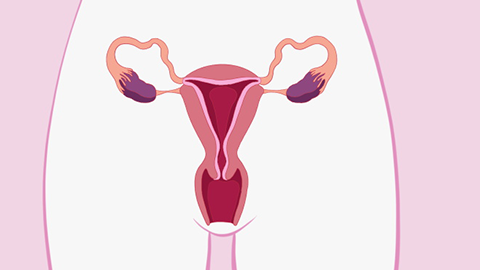What to do about endometrial thickening
Generally, endometrial thickening may be caused by factors such as long-term sleep deprivation, obesity, anovulatory dysfunctional uterine bleeding, endometrial polyps, and simple endometrial hyperplasia. It is recommended to seek timely medical consultation to identify the underlying cause and, under a doctor's guidance, improve the condition through lifestyle adjustments, medication, and other methods. The detailed analysis is as follows:

1. Long-term sleep deprivation: Chronic late-night habits disrupt the endocrine rhythm, leading to disordered estrogen secretion, which stimulates abnormal thickening of the endometrium and may be accompanied by irregular menstrual cycles. Adjust sleep patterns, ensure 7-8 hours of sleep per night, avoid sleeping after midnight, and establish a consistent sleep routine to help regulate the endocrine system.
2. Obesity: Excess body fat converts into estrogen, and the additional estrogen continuously stimulates the endometrium, causing thickening, commonly seen in individuals with a high body mass index (BMI). Weight reduction through dietary control and increased physical activity—for example, engaging in aerobic exercise at least three times per week for 30 minutes each session—can help reduce fat accumulation and lower estrogen levels in the body.
3. Anovulatory dysfunctional uterine bleeding: The absence of ovulation from the ovary leads to a lack of progesterone, and the endometrium proliferates solely under the influence of estrogen, manifesting as heavy menstrual bleeding and prolonged menstruation. Follow medical advice to use medications such as progesterone soft capsules, dydrogesterone tablets, or medroxyprogesterone acetate tablets to supplement progesterone, promote endometrial shedding, and regulate the menstrual cycle.
4. Endometrial polyps: Localized excessive endometrial proliferation forms polyps, resulting in overall endometrial thickening, which may be accompanied by abnormal uterine bleeding. Smaller polyps may be treated with medications such as a levonorgestrel-releasing intrauterine system, drospirenone ethinylestradiol tablets, or ethinylestradiol cyproterone acetate tablets, following a doctor's instructions to inhibit polyp growth.
5. Simple endometrial hyperplasia: Long-term estrogen stimulation without antagonism by progesterone leads to endometrial gland proliferation and increased thickness, carrying a risk of abnormal bleeding. Follow medical advice to use medications such as megestrol acetate dispersible tablets, progesterone injection, or norethisterone tablets to inhibit endometrial hyperplasia.
In daily life, maintain emotional stability, avoid excessive tension and anxiety, and reduce the risk of endocrine disorders. In terms of diet, reduce the intake of high-sugar and high-fat foods and consume more fresh fruits and vegetables. Regular gynecological examinations should be conducted to monitor endometrial status, and comprehensive management should be used to improve the issue of endometrial thickening.







